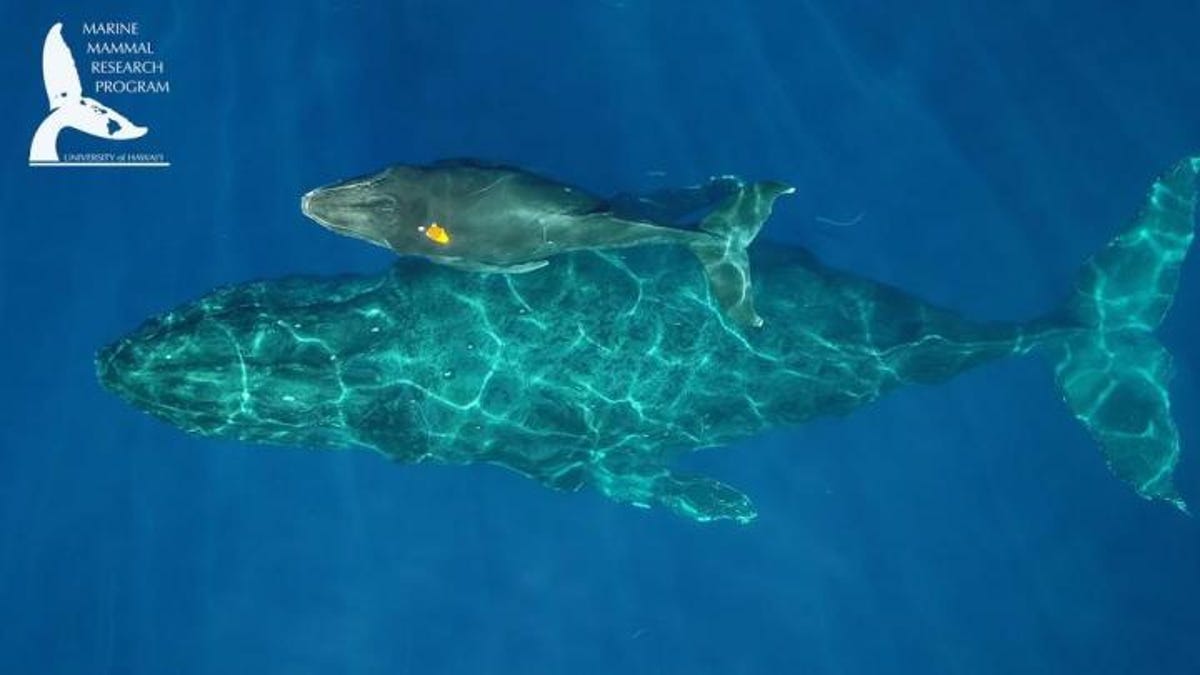Watch this rare, calming video of baby humpback whales nursing
Suction-cup cameras are helping scientists peek into the secret lives of whales.
Tag. You're it! A team led by researchers at the University of Hawaii at Manoa has found a non-invasive way to study the elusive nursing behavior of humpback whales by using cameras attached to suction cups. They now have a whale's-eye view of this key part of the marine mammals' lives.
Every year, thousands of humpback whales migrate to Hawaii to breed and give birth. The researchers tagged seven calves near Maui in February 2020. The tags had cameras, sound recorders and sensors. The team also flew drones over the whales to gather data on body size and health.
The University of Hawaii released a video showing how the tags are attached, along with underwater footage of the gentle nursing process.
"Itʻs quite unique and rare footage that we're obtaining, which is allowing us to quantify these nursing and suckling bouts that are so important," said Lars Bejder, director of the Marine Mammal Research Program at the University of Hawaii Manoa, in a release on Monday.
The scientists collected data on nursing duration, frequency, and the resting behavior of mothers and calves.
Bejder was previously involved in a similar project that captured rare video of humpback whales engaged in bubble-net fishing behavior prior to heading to Hawaii to breed. "Combining these data sets across the foraging and the breeding grounds is really going to tell us something about the importance of these different habitats for these animals," said Bejder.
The Marine Mammal Research Program is engaged in a long-term study of humpback whales and how climate change and the availability of prey is impacting their lives. Sightings of the whales near Hawaii have dropped in recent years, and researchers are hoping new insights into whale behavior may provide some answers to this mystery.


